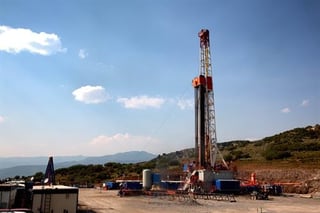
Effective age is defined as the difference between the overall economic life and the remaining economic life of a piece of equipment, a structure or similar asset. Though that provides you with a basic overview of the concept, it can often seem much more complicated than that. How is it determined? How will it impact your company's bottom line? Do you really need to know this detail for your machinery? Here's a quick look at those questions and more.
What is effective age and why does it matter for your business?
Though the above definition of effective age seems rather dry, it does cover the basics. Imagine that you've purchased a cargo van for your company. Purchased new, the expected lifespan is about five years with your expected annual mileage. But what if you found a great deal on another vehicle after a couple years of ownership? By spreading the work between the two vehicles, you may then expect the cargo van to last longer, but exactly how long? That's where effective age comes into play.
If machinery is abused or used in a harsh environment, it may age at a rate faster than would otherwise be considered normal. Salt water, moisture, humidity, sand, grit, dirt, acids: all of these factors can make a piece of machinery age at a much faster rate than would normally be expected, often because they cause excessive wear and tear on the machine's components. If you were considering using machinery like this as collateral in a bank loan, you may find it isn't considered to be worth as much as you might expect.
In both of these cases, the machine itself can be expected to last a longer or shorter time period than may have been originally expected based on the appraiser's prior knowledge of the equipment. Because a machine appraiser spends all day looking at equipment, they have a good eye for when a machine is in exceptional condition and will last significantly longer than expected. For example, a well-maintained piece of equipment that is kept in an ideal environment and worked well below its top specifications can be expected to last much longer than a piece of machinery that is poorly maintained in a bad environment and regularly worked at the very top of its expected performance will.
When you have a machinery appraisal performed on your equipment, you're able to discover about how much longer it can be expected to perform economically for your company. Having this information available makes it much easier to determine when you'll need to purchase replacement equipment. You'll have more time to shop around, learn about the best new features and decide exactly what type of machinery you need and what budget you can afford to spend on the right equipment. That's always a much better option than being forced to quickly replace failing equipment with machinery that won't meet your needs.
By knowing your machinery's effective age, you can better plan for your company's financial needs in the future. This allows you to spread any equipment purchases out over time without having to worry about your equipment failing before it's paid off. By knowing this figure, you can ensure that your company has the means in line to replace the equipment when the time comes without exposing the business to excessive risk.

